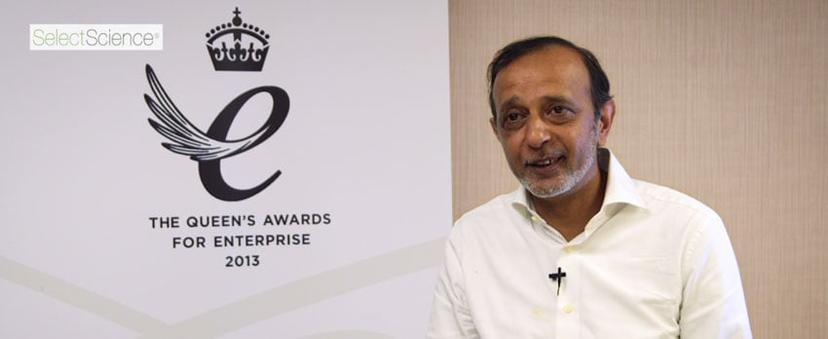Fighting Food Fraud – Is My Olive Oil Authentic
Improving detection of food adulteration with the latest MS technology
22 Dec 2016

Dr Khalil Divan, Senior Director Global Marketing: Food & Beverage, Thermo Fisher Scientific
Dr Khalil Divan, senior director of global marketing group, food & beverage, within Thermo Fisher Scientific discusses how cutting edge mass spectrometry technology is being used to help fight food fraud. SelectScience® Editor, Dr Lois Manton-O’Byrne, spoke with Dr Divan at the 53rd Annual North American Chemical Residue Workshop (NACRW), about the latest methods and technologies being employed.
LMOB: What is food fraud and what are the implications for the food and beverage industry?
KD: Food fraud is a term used where food products are either mislabelled or adulterated for economic gains. Food authenticity is very important. If you buy extra virgin olive oil from Italy, the consumer expects that the product is extra virgin olive oil from Italy. Food adulteration is a big concern in this area, where people add alternative ingredients to the product which are cheaper than the actual ingredients that make up the component in the food product.
Fraud costs the food and beverage industry billions of dollars a year so it’s very important to ensure that the product and the raw ingredients used are not adulterated, or are authentic from the perspective of what the consumer is receiving.
LMOB: What is the biggest challenge in food fraud testing?
KD: The big challenge in authenticity testing or food adulteration, is that nobody tells you what they’ve adulterated it with or where the product has actually come from.
LMOB: What key technologies are used to detect food fraud?
KD: Isotope ratio mass spectrometry is used to identify isotopic differences in various products. You can actually detect a pattern that identifies where the product has come from just by looking at the isotopic ratio. In the area of honey testing or olive oil testing, isotope-ratio technology that we offer has been used extensively.
You also need screening technologies. The introduction of Orbitrap technology both on the gas and liquid chromatography platform, offers the ideal technology for customers who are looking for unknown screening so they can screen a sample and identify compounds which could potentially have been added to the product.
LMOB: What do you hear from your customers?
KD: Our customers want solutions. What we mean by solutions is they’re looking to us to partner with them to supply the, conditions for sample preparation, the method, right up to the instrument conditions. Our aim is to provide a total workflow so all the customer has to do is put in the matrix that they’re interested in, the analytes that they want to monitor, download the method onto the instrument and then the instrument is ready to run from day one. Saving our customers the time and effort in developing workflows from scratch. By providing workflows from sample preparation to data they can quickly turn it into knowledge so they can use it to focus on the science and business needs.
LMOB: What do you hear from the food and beverage industry regulators?
KD: What the industry and the regulators are looking for from our perspective is to provide technology and innovations which address two key areas - more sensitive instrumentation, to comply with the lowering of detection limits for key analytes in the area of food safety, and also innovations which address a wide range of analytes in one run - Multi residue methods. By developing solutions we also will be helping our customers to be more efficient and increase their productivity by reducing training needs, method development time and comply with regulations covering food safety, monitor quality of their product, meet labelling requirements and combat food fraud.
